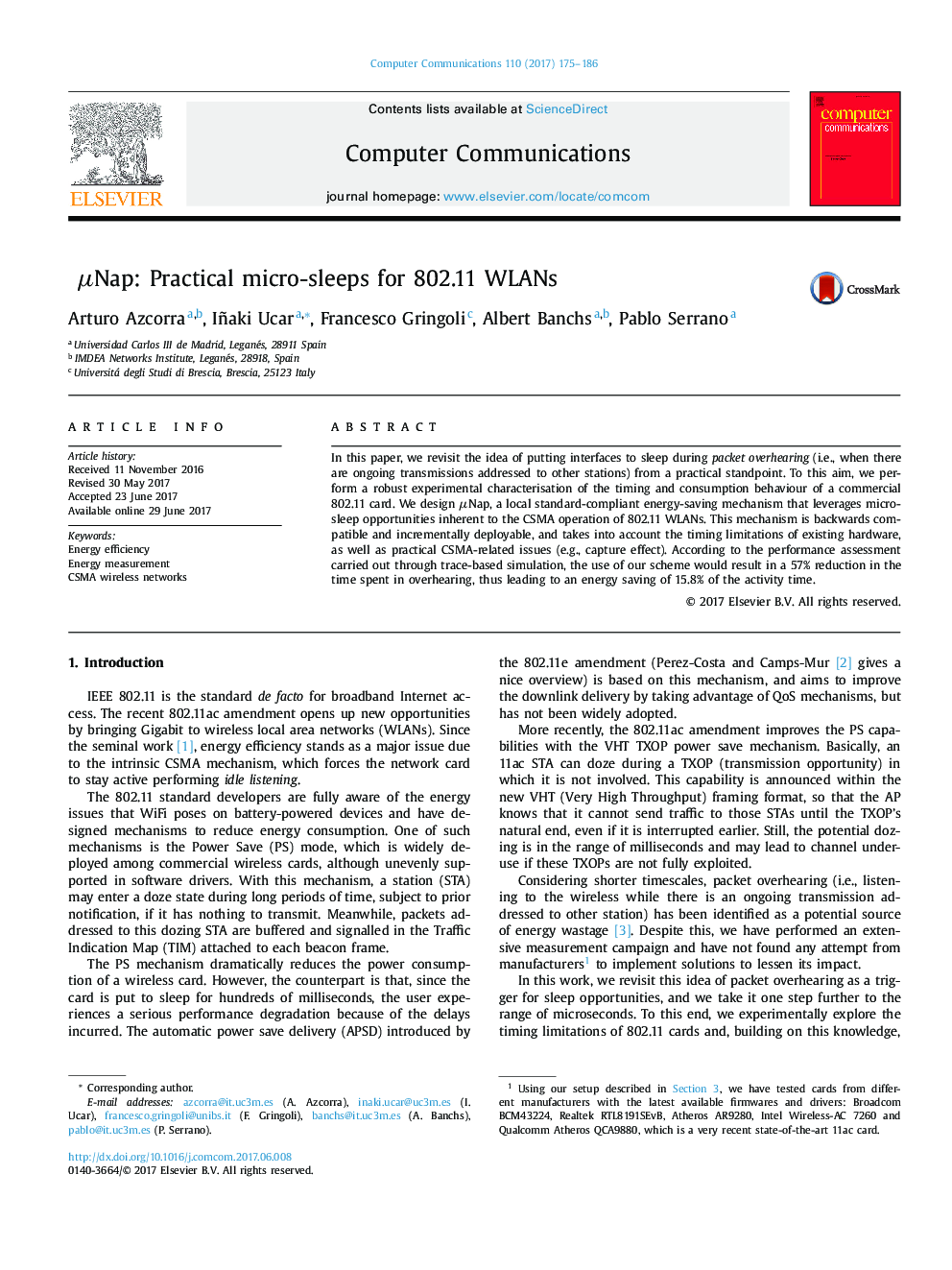| Article ID | Journal | Published Year | Pages | File Type |
|---|---|---|---|---|
| 4954291 | Computer Communications | 2017 | 12 Pages |
Abstract
In this paper, we revisit the idea of putting interfaces to sleep during packet overhearing (i.e., when there are ongoing transmissions addressed to other stations) from a practical standpoint. To this aim, we perform a robust experimental characterisation of the timing and consumption behaviour of a commercial 802.11 card. We design μNap, a local standard-compliant energy-saving mechanism that leverages micro-sleep opportunities inherent to the CSMA operation of 802.11 WLANs. This mechanism is backwards compatible and incrementally deployable, and takes into account the timing limitations of existing hardware, as well as practical CSMA-related issues (e.g., capture effect). According to the performance assessment carried out through trace-based simulation, the use of our scheme would result in a 57% reduction in the time spent in overhearing, thus leading to an energy saving of 15.8% of the activity time.
Keywords
Related Topics
Physical Sciences and Engineering
Computer Science
Computer Networks and Communications
Authors
Arturo Azcorra, Iñaki Ucar, Francesco Gringoli, Albert Banchs, Pablo Serrano,
